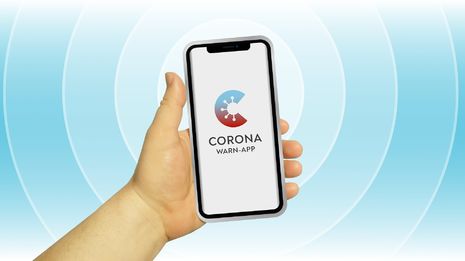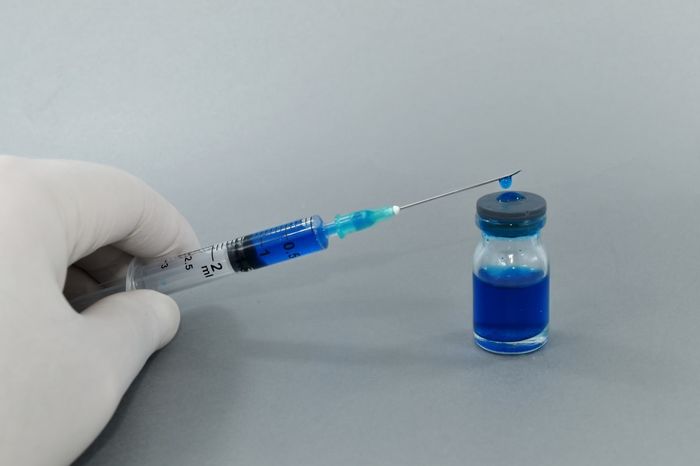The ethics of contact tracing apps
In light of the COVID outbreak, Shazia Absar gives an overview of contact tracing apps and the complications behind their usage

Contact tracing, the process of identifying, assessing and managing the recent contacts of an individual who has tested positive for an infectious disease, is a well-established method for controlling infectious diseases. In essence, it aims to identify individuals who may have contracted the disease by either quarantining them, treating them or changing their behaviours to ensure the safety of others. Contact tracing has been used, in some form, throughout the COVID-19 pandemic with individuals who test positive being asked to share details of their recent contacts, who are then asked to isolate by NHS Test and Trace.
For a disease like COVID-19 for which a large proportion of infections are caused by asymptomatic individuals, more comprehensive methods of contact tracing are required for effective control of the disease. For this reason, on the 24th September 2020, the NHS COVID-19 app, a Bluetooth-based contact tracing app, was unveiled.
Contact tracing mobile apps have become a popular mainstay of the COVID-19 era and have been used by many different countries with varying degrees of success. For example, countries across the world including Singapore, Australia, China, France, Germany, the Netherlands and New Zealand have all implemented contact tracing mobile apps.
The use of such technologies raises important questions surrounding the ethical implications of using mobile apps for instantaneous contact tracing.
“Given the perceived infringement on a person’s rights..., it is important that the app is actually effective enough for this infringement to be balanced by the benefit to the population as a whole.”
One of the main ethical concerns centres around privacy. There are concerns about which parties may have access to this information and what they may use this information for, aside from its intended use. Some have even speculated the long term implications of having a record of a person’s interactions and perceived “risk” status. Some have suggested that, if COVID-19 persists at low incidence in the coming years, employers may try to ensure the individuals they hire are not at “high risk” of contracting COVID-19, discriminating against individuals of lower socioeconomic status who, for example, may live in cramped housing.
In addition, there are concerns regarding the efficacy of contact tracing apps. Given the perceived infringement on a person’s rights (i.e. privacy and freedom of movement), it is important that the app is actually effective enough for this infringement to be balanced by the benefit to the population as a whole.
Most contact tracing apps use a low energy form of Bluetooth to estimate the distance between two phones. Generally, if a phone is estimated to have been within 2 metres of someone who has tested positive for COVID-19 for more than 15 minutes, the app’s risk algorithm will consider that the individual is a high-risk contact and they will likely be asked to isolate.
The use of this Bluetooth-based technology raises questions about the efficacy of these apps. Two individuals who are less than 2 metres apart may, for example, be separated by a wall or they may be outside where the risk of transmission is lower. There is no evidence that the Bluetooth signal can be used to decipher these external factors leading to concerns about the rate of false positives given by the app. Not only do these false positives cause individuals to unnecessarily quarantine and suffer the financial, mental and emotional stress that may ensue, but it also generates distrust of the app, leading people to potentially ignore the app’s alerts.
“It also raises an issue of efficacy as these apps, like many public health control measures, are only effective if a certain proportion of the population comply.”
Indeed, there are also ethical concerns surrounding the use of a smartphone app as a major means of infectious disease control when not everyone has access to a smartphone. It is estimated that around 16% of adults in the UK do not use a smartphone, with this figure increasing to almost 50% when only considering individuals over 65. This may be especially problematic in countries where mostly only the wealthy have smartphones; individuals with lower income, who are often at the highest risk of contracting infectious diseases, are not offered this protection, thus widening socioeconomic health inequalities.
It also raises an issue of efficacy as these apps, like many public health control measures, are only effective if a certain proportion of the population comply. Modelling carried out by a team at Oxford found that in a hypothetical city with a population of 1 million, 56% of the general population would have to use the app to halt the outbreak. Based on data from Ofcom, this would be equivalent to around 80% of all existing smartphone owners in the UK – a large proportion to rely on. Some countries have circumvented this issue by using non-app based comprehensive contact tracing measures such as Singapore, where they have trialled a Bluetooth “token”, a wearable device used for contact tracing purposes.
The hugely successful contact tracing systems from Singapore and South Korea (among other countries) provide obvious evidence for the value of comprehensive contact tracing. However, there are aspects of the approaches implemented in these countries that would simply not be acceptable in other countries, e.g. the use of card transaction data and mobile tracking data. Hence, an effective contact tracing app that protects the privacy of the user provides a more ethically robust method of achieving the benefits of contact tracing.
The NHS COVID-19 app fulfils this description in some aspects. It holds little personal information, only asking for the first part of the postcode, the relevant authority, access to Bluetooth, and the camera for scanning QR codes. The app generates random codes to share with other devices with which it communicates via Bluetooth; these codes are then deleted after 14 days, ensuring anonymity and destroying any lasting record of these encounters. However, concerns about the efficacy of the app and the high rate of false positives have led to distrust of the app and its alerts.
It is clear that contact tracing mobile apps will play an important part in exiting the COVID-19 pandemic around the world. Despite the ethical concerns surrounding such apps, it is also important to consider the bigger picture and the impact of prolonged blanket lockdowns. Then, cases and deaths may be avoidable.
 News / Downing Bar dodges college takeover31 January 2026
News / Downing Bar dodges college takeover31 January 2026 Comment / College rivalry should not become college snobbery30 January 2026
Comment / College rivalry should not become college snobbery30 January 2026 Fashion / A guide to Cambridge’s second-hand scene2 February 2026
Fashion / A guide to Cambridge’s second-hand scene2 February 2026 Lifestyle / Which Cambridge eatery are you?1 February 2026
Lifestyle / Which Cambridge eatery are you?1 February 2026 News / Deborah Prentice overtaken as highest-paid Russell Group VC2 February 2026
News / Deborah Prentice overtaken as highest-paid Russell Group VC2 February 2026









